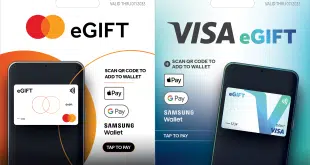With its abrupt move over the weekend to discontinue mobile remote capture of checks, PayPal Inc. has puzzled payments experts and vexed at least some users.
Some PayPal devotees took to Twitter on Sunday to post their reactions, which were generally negative. “I was told today you all won't be doing [remote deposit capture] anymore which has me switching away from PayPal,” noted one tweet. “Boo for stopping check capture!” went another post, and “It's a shame you folks are discontinuing your check capture service. It was the most convenient way to send $ to PayPal,” read yet another one.
PayPal notified users in an email Sunday that it was shutting down the service as of that date for its mobile app. It also announced it had on June 12 dropped the mobile-deposit feature from its PayPal Here mobile point-of-sale app, which is used by small merchants to process payments on smart phones. The processor adds in a statement on the matter that business users can still “record checks” in PayPal Here the same way they record cash transactions.
Both the decision and its suddenness are perplexing to some observers who follow mobile deposit capture. “I’m surprised by this move by PayPal,” says John Leekley, chief executive and founder of RemoteDepositCapture.com, an Alpharetta, Ga.-based research firm. “Remote deposit capture is one of the top reasons consumers and businesses change financial-service providers.”
PayPal sent its statement in response to a Digital Transactions News inquiry, but at the time of this posting had not responded to a request for more information about the rationale for the move. It has not released how many consumers or businesses have used the service.
In the statement, the company implies the remote-capture feature simply wasn’t getting sufficient usage. “Checks have become a less common way to pay for things and many of our customers have either fully moved away from checks or have other ways to pay,” the statement reads. “In doing this, it allows us to focus on our primary mission, creating a truly digital economy – whether shopping online, paying a friend, or using a mobile device to pay.”
Yet mobile remote capture remains popular for most financial institutions that have introduced it, Leekley says, while the PayPal user base, especially small merchants, continues to deal in checks. “I think it’s safe to say PayPal customers receive and use checks,” he says.
He speculates that the hold time that PayPal imposed before releasing funds—generally five or six days, compared to next-day settlement at banks—may have suppressed usage. “Banks may have won a battle with PayPal,” he notes. “Banks still have an advantage.”
Indeed, PayPal in the end likely concluded the service is something better handled by financial institutions. “It makes sense that it be shut down,” says Dan Schatt, a former PayPal executive. “The reality is that PayPal is not trying to be a bank replacement, not trying to go after deposits.” He says remote capture was offered chiefly as a “convenience,” but that PayPal came to see it as detracting from its core business of digital payments. “It was not a best-of-breed piece of functionality,” says Schatt, who now serves as chief commercial officer at Stockpile Inc., a Palo Alto, Calif.-based payments firm.
With mobile deposit capture, users snap an image of the front and back of a check and send the image to a financial institution or third-party provider for deposit. PayPal introduced its service in the fall of 2010 as a means of streamlining the funding of PayPal accounts. It then included it as a feature when it launched PayPal Here early in 2012.
Clearly, not all PayPal users will miss mobile remote capture, But it appears those who used the service are a dedicated lot. “PayPal no longer offering mobile check capture because it was actually a useful service,” posted one sarcastic user on Twitter Sunday.





